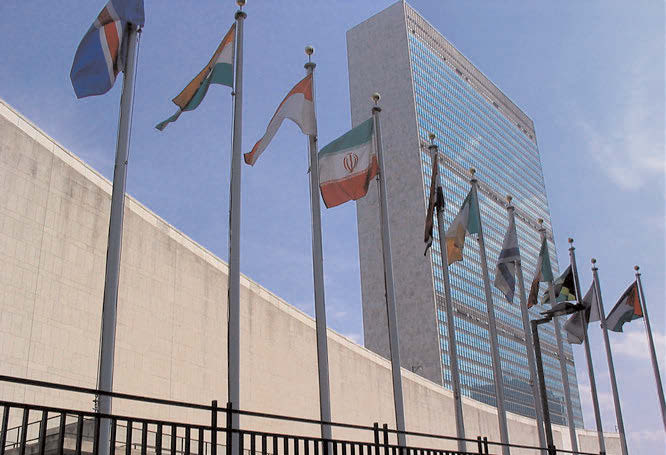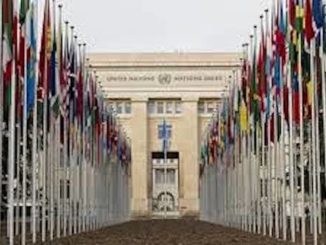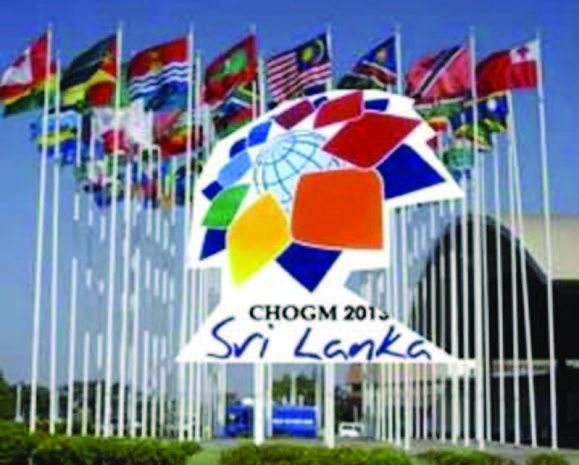
India has unquestionable credentials to seek a place on the global high table: Second largest population, third largest economy in PPP terms, leading IT power and largest troop contributor to UN Peace Keeping operations. Add to that the moral dimension and image of a peace loving nation which produced the likes of Buddha and Gandhi, which Prime Minister Narendra Modi invoked recently on an overseas tour
For India, one of the biggest diplomatic challenges is to secure a permanent seat on the UN Security Council. It would be an ultimate recognition of our stature and emergence on the world scene although one could argue whether any tangible benefit would accrue to us from that development.
Nations,too, behave emotionally. A very senior Indian Government official told me some 25 years ago that the real reason for India not signing the Nuclear Non-Proliferation Treaty (NPT) was that we did not want to be consigned forever to the B league and that if the nuclear weapons were to be regarded as a benchmark of big power status we too would produce nuclear weapons.
India has unquestionable credentials to seek a place on the global high table: Second largest population, third largest economy in PPP terms, leading IT power and largest troop contributor for UN Peace Keeping operations. Add to that the moral dimension and image of a peace loving nation which produced the likes of Buddha and Gandhi, which Prime Minister Narendra Modi invoked recently on an overseas tour. While this may not weigh in much with those who call the shots in international affairs, its appeal is sure to find resonance in many African and Latin American capitals. But would India get its legitimate due soon?
While membership of the UN has increased nearly fourfold since its birth in 1945, the UNSC has been expanded only once in 1965 by increasing the number of non-permanent seats from 6 to 10. There is thus an imperative need to undertake further expansion of this body to reflect the current global dynamics and to give equitable representation to different geographical regions in the world.
The United Nations was set up by Second World War victors. Global peace and security architecture cannot continue to remain based on the supremacy of those allied powers.
For years, the process of UNSC reforms has remained stalled. New emergent powers who have joined hands as G-4 (India, Brazil, Japan and Germany) have been pressing for permanent seats on the Council. All of them deserve permanent seats based on the size of their economies and other objective criteria. Their candidature, however, is actively opposed by their regional rivals and those countries (known as ‘Coffee Club’ countries such as Italy, Spain, Turkey, Argentina, Mexico, Pakistan, South Korea and Indonesia). They have lobbied hard to block any progress in the matter.
UNSC expansion would require charter amendment which cannot go through if opposed by any P-5 country. Securing the support of two thirds of UN membership should be relatively easier since developing countries are generally supportive of the reform process even though Africa’s position could prove to be an obstacle. Ezulwini consensus adopted by the African Union in 2005 demands two permanent seats for Africa but the finalization of specific candidates would be contentious since there are many claimants.
Chances of that happening soon appear remote and that could well be used by the Coffee Club members to stall the reform process in the name of building consensus. These circumstances could also lead to increased clamor for creating a new category of semi-permanent members, not just in Africa but globally, comprising 10-15 middling/emerging powers to serve on the Security Council on a rotational basis. Quite frankly, this rotational formula, which has been on the table for quite some time, is a red herring and is being pursued by detractors only with an intent to stall the reform process.
Let us examine the position of P-5 countries on this important question. The USA appears quite content to see opposing factions continuing to quibble. It is against any hasty move on the expansion of the UNSC and wants more urgent reforms relating to management and accountability addressed first.
In any case, it does not favor any large-scale expansion of the UNSC. As regards specific countries, it initially supported the candidature of Japan and Germany but President Obama has also explicitly endorsed India’s candidature by declaring in his address to the joint session of our Parliament in November 2010 that he looked forward “to a reformed UNSC that includes India as a permanent member.”
The UK and France have shown greater flexibility and publicly support the candidature of all G-4 countries as well as permanent representation for Africa. But they have also suggested an interim solution by creating a new category of seats for these countries with a term longer than two years which would be renewable with a provision for a review of the arrangements after an initial phase whereby it “could be decided to turn these new types of seats into permanent ones.”
It has been argued by several commentators that their support is only on the surface and that they do not find any need to actively oppose the reform process as long as the negotiations remain stalled.
Russian stated position favors the Coffee Club countries. It is against any “artificial deadline” and wants final decision to be supported by a “broad majority” comprising most of the countries, not just two thirds as legally required. Russian Foreign Minister Lavrov has himself noted that in the eyes of several “well-established countries of medium size” opposing the G-4 demand “the UNSC will be much less legitimate than it is now if it is reformed by voting against their desire for consensus.”
In the light of irreconcilable differences between opposing groups it has advocated search for a compromise solution. Notably, Russia, along with the USA and China, has also not provided any inputs for the negotiating text.
China has also rejected imposition of any time limit and wants consensus to be achieved through consultation to accommodate the interests of all parties, especially small and medium-sized countries. It is firmly opposed to any permanent seat for Japan and, in all likelihood, would also be reluctant to support India. In fact, rather than induction of any specific countries as permanent members it favors the principle of regional rotation. China is actively lobbying at the UN and in African and Latin American capitals to prevent any concrete progress in the UNSC reform process.
We seem to have drawn much satisfaction from the resolution adopted last year on the initiation of text-based negotiations. It is no doubt a significant step but it would be naive to expect any early breakthrough given the continuing indifference and even opposition from permanent members. I have followed this process closely since 1988 when I was posted to our Mission to United Nations in New York. Ironically, I was told by a senior then that a deal was about to be stitched up. Nearly thirty years down and we are still waiting!!Personally, therefore, I am very skeptical about India getting a permanent seat in UNSC anytime soon. Let us face the truth; existing permanent members are just not interested in their primacy and power getting diluted by addition of new countries in their group. We have seen them holding progress for the sake of consensus which they otherwise hardly bother about and lending their support for alternative proposals which do not at all meet our expectations.
What options do G-4 countries and India in particular have if the international community continues to ignore our genuine aspirations? How long are we willing to wait – 5 or 10 or maybe 20 years? Surely we cannot wait indefinitely. PM Modi in his speech in France last April ‘demanded’ a permanent seat on the UNSC as India’s right, noting that days for India to beg for the seat were long gone. Are we willing to logically follow up on this assertion and what are our choices?
It would be imperative for G-4 countries to remain united. There are attempts to divide us and individual countries are being told in private that abandoning one or two members would strengthen their chances. But those temptations might prove elusive. Collectively, G-4 enjoys considerable weight and clout and that is the biggest advantage in its favor.
One option for the G-4 countries would be to increasingly utilize G-20 for playing their legitimate role in international affairs. Although conceived primarily to deliberate on global economic and financial issues, the G-20 summits have occasionally taken up political and security issues. In fact, at the last summit in Turkey these issues dominated the discussions in the backdrop of Paris terrorist attack. During their presidency, the French had tried to broadbase the G-20 agenda but we ourselves were undecided and somewhat suspicious of the French motives. We should have rather welcomed those efforts since our desire to be involved in global peace and security issues through UNSC was not gathering much traction. Set up in 1999 and with regular summits since 2008, G-20 comprises 19 countries and EU with the presence of all the top world economies and representing 85% of the world GDP. These attributes make G-20 eminently qualified to deal with world issues particularly since economic power has replaced military power as the touchstone of a country’s place in the world power structure.
Other option for at least India and Brazil would be to work for enhancing the role of BRICS. New development bank is a commendable initiative in that context. We should perhaps seek expansion of the group with the inclusion of a couple of emerging economies in order to dilute the influence of China.
If these strategies do not work, we would be left with no option but to think in terms of threatening to leave UN or in the very least reducing our exposure to that organization by downscaling our participation in peace keeping and other UN activities. In order for this to be effective, it would need to be carefully coordinated with other G-4 countries. This may sound too radical but then no organization can really survive if it fails to adjust itself to the changing global dynamics. History bears testimony to how the League of Nations founded in 1920 had to be wound up when it failed to prevent Second World War. It was perceived as a ‘league of victors’ created by Allied Powers which had remained slow in decision making. Most of this probably holds true for UN as well.
Our objective should be to ensure that India gets its rightful and equitable place on the world stage. If UN fails to provide us the desired role, we should have no hesitation in seeking to work through other organizations which are capable of enabling us to play our legitimate role.
(The author retired from the Indian Foreign Service recently. His last assignment was as Indian High Commissioner to South Africa. He also served at the Indian Mission to the United Nations in New York)





Be the first to comment